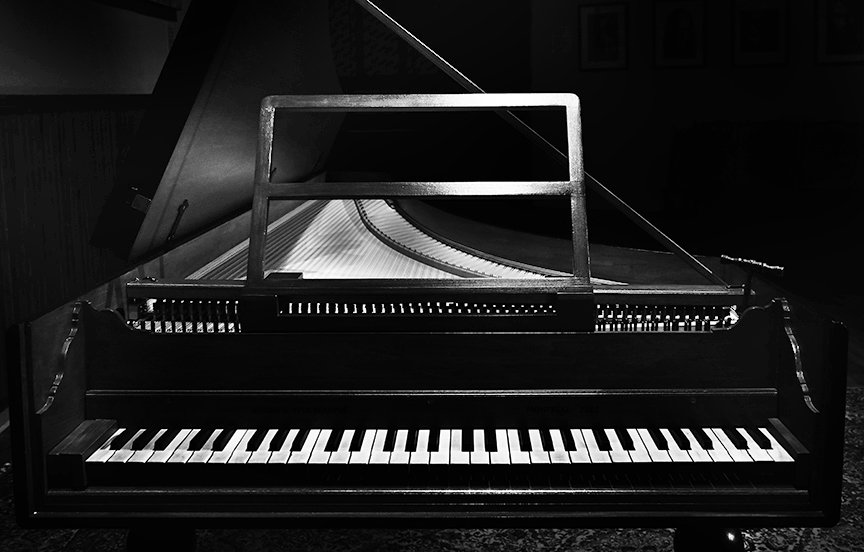
Early music
Early Music Around The World
The Early Music programs at Lamp are almost always our best attended programs each and every year. In fact the reputation of our programs has grown to such an extent that we now offer programs not only at our home base in Lunenburg, Nova Scotia, but in Italy as well; providing lucky artists taking part the opportunity to perform in some of the very rooms the music being studied was once performed, and studying some of the very earliest of manuscripts.
2024 provides two extraordinary opportunities to study early music with Lamp’s outstanding faculty: once in Lunenburg and once in Italy.
2024
Medieval Organ in Bologna (12-16 February)
Medieval Organ in Bologna
February 12 - 16, 2024
Faculty:
Catalina Vicens
Tuition:
$600 CAD plus accommodation
A limited number of bursaries are available.
Having specialized in performing on antique keyboard instruments (ranging from the 15th to the early 19th centuries), she has been invited to play on the oldest playable harpsichord in the world, featured in her recording “Il Cembalo di Partenope” (Diapason d’Or); the 15th-century gothic organ of St. Andreas in Ostönnen (one of the oldest and best-preserved organs in the world), as well as in a large number of prestigious collections in the UK, Europe, Japan and USA. She is also recognized for her work with medieval and renaissance keyboards, working alongside specialized instrument builders in the 'reconstruction' of new prototypes based on historical sources, and for her work alongside composers to give a new life to historical instruments.
In 2021, Vicens has been named curator of the Tagliavini Collection in Italy, one of the largest historical keyboard collections in Europe, and artistic director of Museo San Colombano in Bologna, as successor of the late Liuwe Tamminga, one of the leading experts of the Italian organ repertoire together with Maestro Luigi Ferdinando Tagliavini.
Catalina is also harpsichord/research lecturer at the Royal Conservatory of Brussels (Belgium). She has been invited as Visting Professor of Harpsichord at Oberlin Conservatory (USA) and to teach master-classes at the Longy School of Music Cambridge, the Flint Antique Harpsichords Collection (USA), the Horniman Museum (UK), the Universität der Künste Berlin and the Folkwang Universität der Künste Essen (Germany), and teaches regularly at the Early Music Academy in Lunenburg (Canada), Early Music Course at Burg Fürsteneck and the International Portative Organ Festival (Germany), which she curates since 2011. She’s been invited as jury member at the Jurow International Harpsichord Competition, Mechelen Harpsichord Competition , the Dulwich Historical Keyboard Competition and the Wanda Landowska Competition Poznań.
Vicens performs and records regularly as a member of ensembles of medieval, renaissance, baroque and contemporary music in Europe, North America. In 2013 she founded ensemble Servir Antico, with whom she aims to shed light on the less-known repertoire and intellectual heritage of the humanistic period (13th-16th century) while using the concert stage to share with the audience the voices of these visionaries of the past, but also committed to using it for amplifying new voices.
Catalina Vicens, a native of Chile, started her international career at an early age. By age 20 she had already played in the main concert-halls of more than ten countries in North and South America, including the Teatro Colón de Buenos Aires Argentina, the Kimmel Center in Philadelphia and the Teatro Municipal do São Paulo. She studied modern piano at the Instituto de Música de la P. Universidad Católica de Chile, harpsichord at the Curtis Institute of Music in Philadelphia, at the Musikhochschule Freiburg, and at the Schola Cantorum Basiliensis as well as medieval keyboards in the latter, and contemporary music performance at the Musik Akademie Basel. She is Ph.D. candidate at Leiden University / Orpheus Institute Ghent.
Praised by the international press as one of the most interesting musicians in the field of early music, Catalina Vicens' dynamism and approach to historically informed performance and musicological research has led her to become one of the most versatile and sought-after historical keyboard performers and teachers of her generation.
The Music of Heinrich Schütz
October 14 - 19, 2024
Faculty:
TBA
Tuition:
$600 CAD plus accommodation
A limited number of bursaries are available.
Heinrich Schütz -Christoph Spätner, c. 1660 (wikipedia)
Heinrich Schütz was a German early Baroque composer and organist, generally regarded as the most important German composer before Johann Sebastian Bach, as well as one of the most important composers of the 17th century. He is credited with bringing the Italian style to Germany and continuing its evolution from the Renaissance into the Early Baroque.
Most of his surviving music was written for the Lutheran church, primarily for the Electoral Chapel in Dresden. He wrote what is traditionally considered the first German opera, Dafne, performed at Torgau in 1627, the music of which has since been lost, along with nearly all of his ceremonial and theatrical scores. Schütz was a prolific composer, with more than 500 surviving works.


